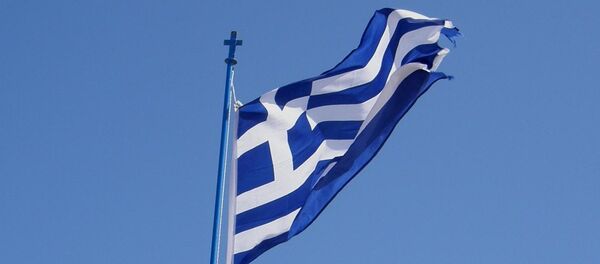"Well, we can imagine any situation, so if such [a] petition is submitted to the Russian government, we will definitely consider it, but we will take into account all the factors of our bilateral relationships between Russia and Greece, so that is all I can say," Siluanov told CNBC in Moscow on Thursday.
The new Greek government headed by the anti-austerity Syriza Party is facing a tough period of negotiations next month as it sets out to negotiate on its €323 billion debt, three-quarters of which is owed to the countries of the European Union, the European Central Bank and the International Monetary Fund. The country needs to reach an agreement by the end of February in order to be eligible to receive the next tranche of bailout funding. Syriza had run on a platform of renegotiating its debt with European lenders.
Deputy Foreign Minister Nikolaos Chountis told Greek media earlier this week that sanctions against Russia are counterproductive, and painful for the Greek economy, which has a significant dependence on Russia for food exports, tourism, and energy imports. "We do not agree with the spirit of the sanctions against Russia that bring negative consequences not only for agriculture but for the country's economy in general," Chountis noted.
Foreign Minister Nikos Kotzias weighed in as well earlier this week in defense of Greece's sovereignty, and his country's voice in the EU, noting that his country takes issue with "EU policy [being] based on the interests of the countries, which historically have too emotional relations with Russia." The minister noted that "Greece does not accept the situation when the EU policy towards Russia is decided outside the EU institutions." The Greek Foreign Ministry had objected to the EU Foreign Affairs Council's communique intending to impose a new round of sanctions against Moscow over the deteriorating situation in Ukraine, his country believed to have played a key role in preventing the approval of the new measures.
#Greece says #EU should change policy towards #Russia http://t.co/QW6M5V3G89 pic.twitter.com/HLR7xQCBH5
— Sputnik (@SputnikInt) 29 января 2015
Greece Will Find It Difficult to Pursue Truly Independent Foreign, Economic Policy
However, not all hope is lost for Greece, given that Germany, the EU's main geopolitical and economic powerhouse, is between a rock and a hard place when it comes to debt restructuring. While Germany cannot tolerate Alexis Tsipras' demands for a review of repayment conditions, lest other countries make similar demands, Tsipras seems to understand that Greece's exit from the Eurozone, which serves the interests of the German economy, might be even more catastrophic, resulting in a domino effect of other countries threatening to leave the currency zone.
Roberts believes that no matter what the Syriza government does, an "accommodation is unlikely to occur, because a reasonable accommodation is not the desire of Washington, the EU, or of Greece's creditors."






